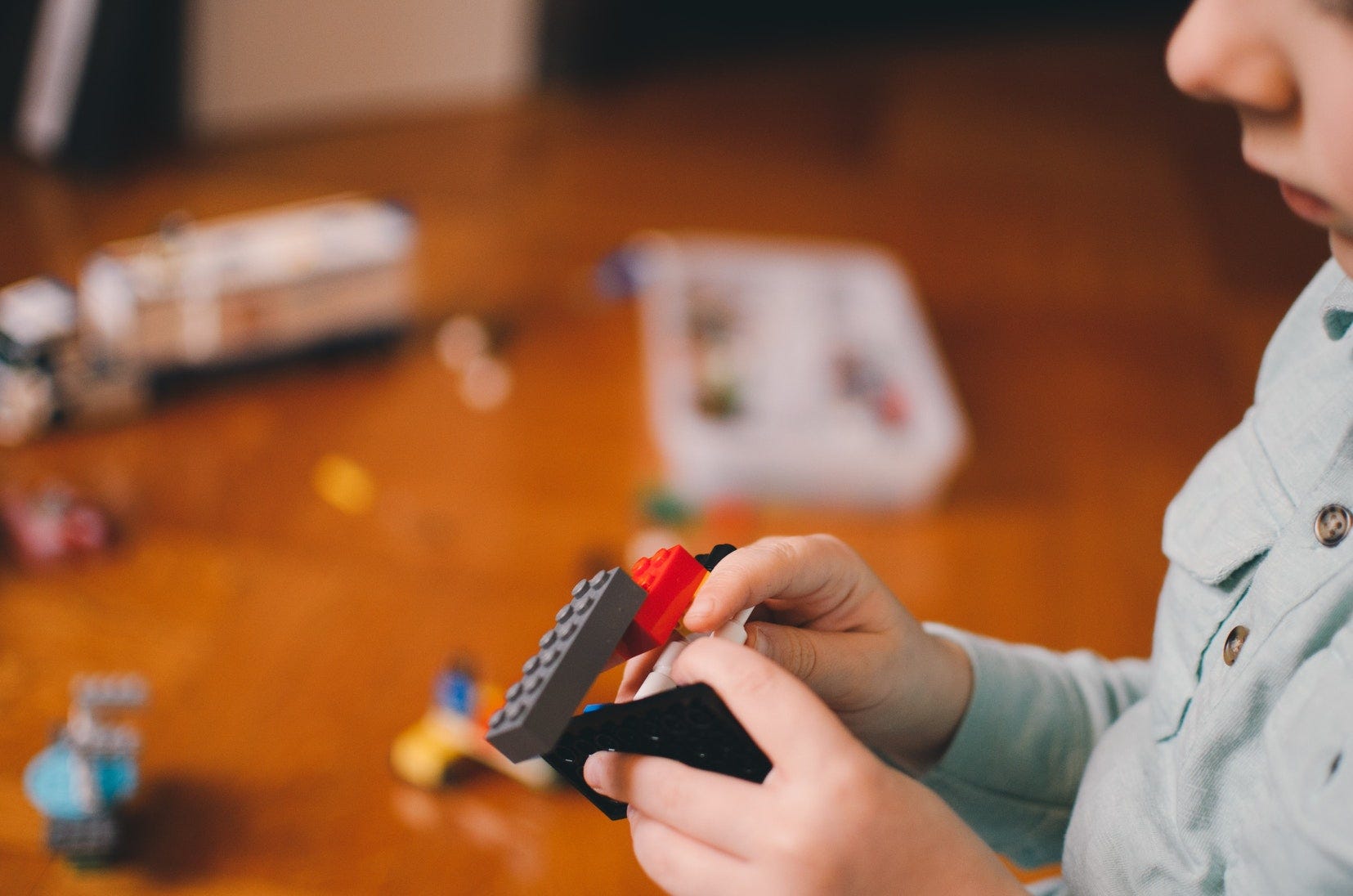Arguments vs. Disagreements
In an argument, there are usually differing opinions and emotions that get in the way of effective conversation. One person often wins while another loses which can make it difficult to resolve things long-term. A disagreement is different. There can be differing views, but both parties are willing to communicate in a way that can bring it to a point of understanding. Learning how to approach differences as disagreements is an important life skill to have.
What causes the escalation that turns discussions into arguments?
The need for control
Alfred W. Adler was an Austrian medical doctor and psychotherapist and founder of the school of individual psychology. He emphasized the importance of feelings of inferiority in it’s relation to the inferiority complex. Today, his research is widely recognized as a key role in personality development.
He argued that people strive for proficiency in their lives and have a strong motive to control their environment.

The illusion of control is a cognitive bias which leads us to assume that we have complete control over the outcome of a situation in an instance where we do not. Which leads me to question, when I think that I have control, what is it that I’m really controlling. When we argue with our children (or anyone else), what is driving the conversation? Is it the long-term reason that prompted the rule originally, or was gaining the upper-hand top of mind when I decided to…well you know…lose my mind.
Who wins in an argument?
Let’s imagine a completely unrealistic scenario that has never ever ever happened to me…in the past week.

Clean up your room!
The house is a mess. You’ve had a long day at work and a tiresome commute home. You walk through the front door, take off your shoes. In a defenseless state, you step on a lego. This all happens dramatically in slow motion of course.
You call out into the air for your child, hearing their name echo against the wall, because we all know that children are never around when you need to reprimand them. After you realize you’re only talking to yourself, you decide to manually use your legs, find them, bring them to the room in question and jab your fingers at the ground. You demand that they clean up their mess!
They drag their feet and complain that they don’t want to. You begin to get angry. Your volume increases. So does theirs. You tell them that if they don’t clean the room in the next few minutes, you will throw their toys away. They cry. You cry. You go to that cramped spot in your kitchen cabinet where you keep the garbage bags and return, tossing toy after toy into the plastic abyss, laughing maniacally into the air. They see you experiencing joy and want to put an immediate end to it, so they begin to clean up. You drop the bag on the ground as a clear warning and declare that if toys are left on the ground in the future, THEY WILL GET THE GARBAGE BAG.
Then you go into the dining room and pour yourself a well deserved wine, gulping it down smiling, feeling satisfied that you won that round.
You’re happy, but what about them?
How did this go for your child? Let’s pretend we are them. (This is fun!)
You’re a six year old and in the middle of a building the most amazing princess necklace out of the cool sparkly thread you found under your bed and some mismatched beads you had been saving. Suddenly, mom is in the doorway. You haven’t seen her all day so you’re happy to see her, until you realize, she looks really mad. Now, she tells you to go downstairs, but if you drop your necklace, it may get ruined. She’s saying something about some mess but she just walked in, why is she in such a state.
You come downstairs and suddenly remember the cool fort you were building out of legos and figurines from earlier. You had left it, for some reason you can’t remember, but you did want to come back to it later. Now she wants you to ruin it and put it away. It took you so long to make the building and the fence.
You really want to keep your things the way you had it, you want her to stop yelling at you, your necklace is disintegrating upstairs and now your mom is saying something about destroying the things that you love.
Wait what? Destroy your things. But those aren’t her things! She can’t throw out your things, she has no right! But there it is, a garbage bag. Oh my god, she’s putting your toys IN the garbage bag. She’s really throwing them away. There’s nothing you can do, she’s so much bigger, it’s not fair, she’s so mean! Now you’re crying. Why is she doing this to you? Does she hate you?
You start to undo your forts and toss the poor figurines into the boxes knowing that they’re probably also upset. Now she is telling you to eat dinner and you’re not hungry. You sit angrily at the dinner table wondering how you ended up with the meanest most spiteful parents in the whole wide world. You look at your mother’s face, gloating that she got her way and secretly you begin to plot your revenge. Screw those peas!
You won today, but what about tomorrow?
The point of this fiction is to show you that the party that loses the power struggle may end up resentful, angry and disengaged. This is not a productive emotional state if you want them to be cooperative the next time or feel positive about the task you want them to start adopting as part of their new routine. All it does is set the stage for more power struggles, as they try to find new annoying ways to get out of cleaning or seeing how far they can push your buttons.
I want you to WANT to clean up your room.
Ideally, we would want our child to want to clean up without having to be told. We want them to understand some of the ways that this helps them grow into a responsible adult and help others in the household. We want them to keep doing this until they’ve built a productive habit.
So how do we create an environment that is conducive to this result without getting into arguments? Here are some ideas.
Know your triggers
As a parent, I fail time and time again at stopping myself from getting into power struggles. It is really hard to do, but whatever, I can be a work in progress…forever if I have to. It’s more important that we try to be mindful about the things that we do, and put some effort into improvement. It’s really helpful to retroactively take notes of what went wrong, where did I lose my cool and what could have been done better. Then practice that the next time.
Focus on long-term strategies rather than short-term wins
With a long-term plan, you want to make sure that they are in the right mindset to allow the type of thinking that could make it last a lifetime. It can include the following:
- Leave them feeling respected
- Let them feel like they have a choice
- Make them feel like their voices are heard
- Use incentives or gentle ways to hold them accountable to make the productive choice easier.
- Give them enough education and reasons so it is clear that your motive is to teach them how to be independent, healthy and happy.
If you feel like this is asking a lot, ask yourself what makes you feel motivated at work. It’s probably a similar list because these things are universal.
Catch more flies with honey
The easiest way to reduce confrontation from the other party is to make them feel respected. Simply pointing out the positive things that you are proud of before leading into what you would like improved, could help keep them engaged in what you have to say next.
Use positive benefit-driven language
Avoid phrasing messaging as negative such as,
“You’re growing up so fast and doing so well BUT this leaving a mess everywhere is something a baby would do.”
Instead, keep the conversation positive and inclusive.
“You’re growing up so fast and doing so well. You’re at an age where I think you can handle keeping yourself organized and tidy. It can help you find things, keep the pieces of the things you love together, and be considerate of others that we share spaces with. It’s how we all live together peacefully. Respecting your things and others is a very grown thing to do. Let me help show you how I clean up after myself and then I’ll help you as well.”
Allow them to be a part of the conversation
It is fine to have rules and expectations as long as it is clear. Perhaps you want to make it easier for them to clean their room by offering up tangible rewards. Explain what they are and why you are encouraging them to start doing this. If you want to create some gentle barriers as a way to hold them accountable when they want to disregard the rules, let them know ahead of time as well.
Let them make decisions
You’re not going to always be there to guide them. Often times, when teenagers make bad decisions, they will often cite not stopping to think, peer pressure, not considering the consequences or to even get back at their parents. We want to not only have them to choose the productive choice, but understand the mechanics of good decision making. Not only will it make them feel as if you trust and respect them, but it will help them start to make more productive choices in the future.
Talk to them when you’re both calm
I usually will remind a child what is expected at the time of the incident, but I like to hold off the bulk of the conversation for a more quiet time such as when I put them to bed, or when we do their allowance at the end of the week. I have found that they are more willing to listen, and less likely to argue when they no longer are emotionally riled up. It can be much easier to have a constructive conversation at that point.
Be patient
It’s important to remember that if your child is doing one thing, and you want them to start doing another thing, that’s habit change and it can take a long time. A study by Phillippa Lally, a health psychology researcher at University College London, found that it took a person anywhere from 18 days to 254 days to form a new habit. The average was 66 days.
Obviously nobody is perfect, and the most we can do is try. I think being a little more aware, empathetic and mindful can go a long way. I hope that this gives you some ideas, or makes you think about solutions that can reduce arguments and get onto a path of productive conversation.
As always, Happy Parenting!


